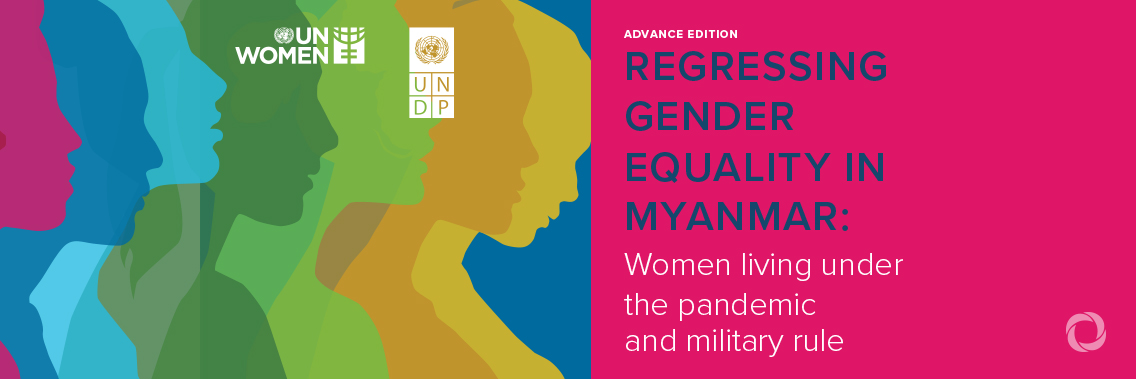Rising violence and insecurity are forcing women in Myanmar to stay away from jobs and healthcare services, says a new UN survey of over 2,200 women, which signals a deterioration of development gains in the country.
“Regressing Gender Equality in Myanmar: Women Living Under the Pandemic and Military Rule”, which launched on International Women’s Day, finds that women are losing ground on development gains, due to fear of violence. The survey conducted in December 2021 found that one-third of women are afraid of walking in their neighborhoods, even during the day.
This is a sharp departure from what women in Myanmar said in 2019 when only 3.5 percent of women reported feeling unsafe during the daytime, in their communities. Half of the women surveyed said they do not feel safe outside their neighborhoods, and a full third reported feeling unsafe in their own homes, at night.
Regressing Gender Equality in Myanmar: Women Living Under the Pandemic and Military Rule – launched today on #IWD2022 finds that women in Myanmar are losing ground on development gains, due to fear of violence. Latest study from @UNDP @un_women . https://t.co/hcgxgzE2Pw pic.twitter.com/Kp1QDvhwaf
— UNDP Asia Pacific (@UNDPasiapac) March 8, 2022
“The survey sends a clear and chilling message that the fear of violence is preventing the women of Myanmar from living a normal life. This must be addressed right away,” said Kanni Wignaraja, UNDP’s Director for the Regional Bureau for Asia and the Pacific. The pandemic and heightened insecurity from the military takeover has gravely impacted women’s finances and health. Without investments in their safety, agency, and capacities, women will be unable to take ownership of their lives and take care of their families. This will have a direct adverse effect on future generations and on the overall prosperity of Myanmar.”
The survey also paints a bleak view on the economic front. Nearly seven out of 10 women report that household income has fallen since the coup, exacerbated by the pandemic. Women living in rural areas are experiencing a continual decline in their incomes. With shrinking household incomes, women report skipping meals, taking out loans, and selling off anything valuable to make ends meet. This drastic fall in economic prosperity for women must immediately be halted and the wider health and welfare of women in Myanmar must be prioritized for the country to rebound following COVID-19.
“The women of Myanmar have played a key role in the development of their country,” said Sarah Knibbs, Officer-in-Charge for UN Women Asia and the Pacific. “Women drove the response to Cyclone Nargis in 2008 and the transition to democracy after 2012. They rushed to the front lines to help battle waves of COVID-19, and now they have been leading the peaceful movement demanding a return to democracy. They are the future of this country, as this report shows, and we need to give priority to their needs and concerns.”
Women’s health is also affected by the rising insecurity in Myanmar. Half the women reported that access to healthcare services is becoming more difficult. One out of ten pregnant or breastfeeding women had a pregnancy or childbirth issue for which public or private health services could not be accessed. This is an extremely troubling statistic for infant mortality and maternal health in Myanmar.
The report adds that the compounding effects of COVID-19 and the political unrest on women’s security, finances, and health will not disappear quickly. Women are likely to face setbacks for years to come. It is important to reverse this trend quickly to recoup the gains that were being made towards gender equality.

